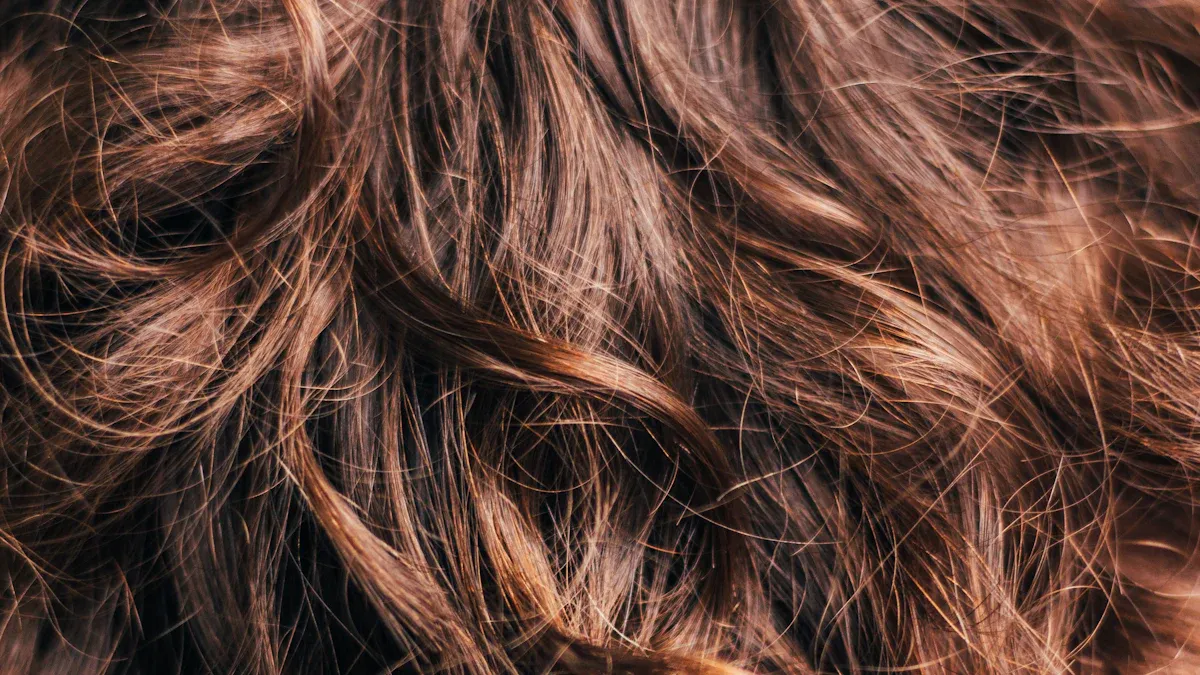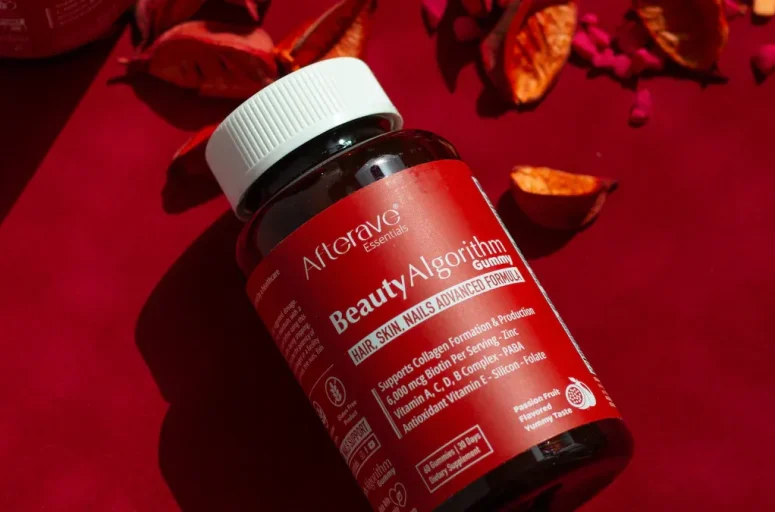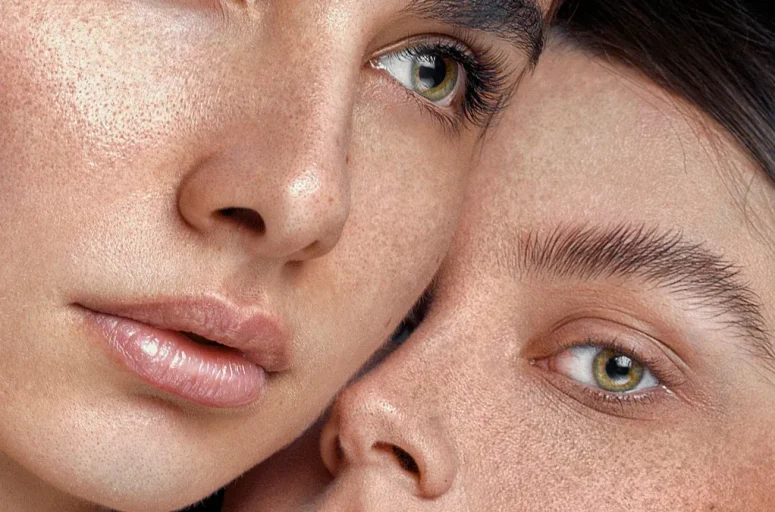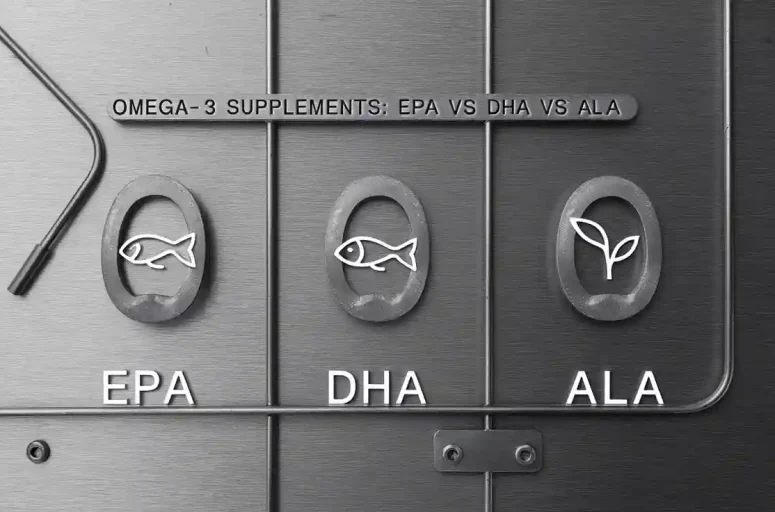
Hair loss can be upsetting, but you’re not alone. Did you know losing 50 to 100 hairs daily is normal? For many people, though, it’s a bigger problem. By age 35, most men in the U.S. have thinner hair. Women also face this—40% of people with hair loss are women.
Luckily, hair growth supplements like biotin, collagen, and zinc can help. These don’t just grow hair; they fix the main problems. Biotin makes hair stronger, and collagen and omega-3s keep your scalp healthy. Adaptogens like ashwagandha lower stress, which helps stop hair thinning. If you want thicker hair or to stop losing more, these hair growth supplements could help you.
Key Takeaways
Biotin makes hair stronger and helps it grow by boosting keratin.
Collagen keeps hair healthy by making it strong and protecting roots.
Vitamin D is important for healthy roots and stops hair from falling out.
Iron helps carry oxygen to hair roots, stopping thinning and loss.
Ashwagandha lowers stress, which can stop hair loss from high cortisol.
Eating foods with protein, vitamins, and minerals keeps hair healthy.
Massaging your scalp often improves blood flow and helps hair grow.
Talk to a doctor before taking new supplements to stay safe.
Detailed Overview of Hair Growth Supplements
Biotin
How Biotin Helps Hair Grow
Biotin, also called vitamin B7, is important for healthy hair. It turns food into energy, which helps make keratin. Keratin is the protein that builds your hair. Without enough biotin, hair can become weak, thin, or fall out. Biotin helps make keratin, which strengthens hair and helps it grow.
Proof That Biotin Works
Studies show that not having enough biotin can cause hair loss. One study found 38% of women with hair loss lacked biotin. Another study showed women taking a hair supplement with biotin had thicker hair than those taking a fake pill.
Study Details | Results |
|---|---|
Women with hair loss and biotin deficiency | 38% of women had low biotin levels. |
Hair supplement with biotin study | Women had thicker hair than those on a fake pill. |
Other Benefits of Biotin
Biotin helps more than just hair. It’s good for skin and nails too. If your nails break easily or your skin feels dry, biotin might help. It also boosts energy by helping your body use carbs, fats, and proteins.
Collagen
Why Collagen Matters for Hair
Collagen is the most common protein in your body. It gives hair strength and stretchiness, stopping it from breaking. Collagen also keeps your scalp healthy by supporting the layer where hair grows.
How Collagen Helps Hair Grow
As you get older, your body makes less collagen. This can weaken hair and slow its growth. Collagen supplements add amino acids that help make keratin. Keratin strengthens hair and helps it grow. Collagen also protects hair follicles from damage caused by harmful molecules.
Studies About Collagen
Research shows collagen improves hair health. In one study, 73% of people had thicker hair, and 80% said their hair was stronger. Collagen also reduced hair breakage for 77% of participants.
Result | Percentage of People |
|---|---|
Thicker hair | 73% |
Stronger hair | 80% |
Less hair breakage | 77% |
Vitamin D
Why Hair Needs Vitamin D
Vitamin D helps hair follicles grow and stay healthy. It works like a hormone to control the hair growth cycle. Without enough vitamin D, hair follicles may stop working, causing thinning or hair loss.
Lack of Vitamin D and Hair Loss
Not having enough vitamin D is common and can lead to hair loss. Fixing low vitamin D levels can sometimes stop hair thinning. Babies with certain genetic problems related to vitamin D also lose hair, showing how important it is.
Low vitamin D levels are linked to hair loss conditions like telogen effluvium.
Some scarring hair loss issues are also tied to vitamin D deficiency.
Fixing low vitamin D levels has helped some people grow back hair.
How Much Vitamin D You Need
To keep hair healthy, aim for 600-800 IU of vitamin D daily. You can get it from sunlight, certain foods, or supplements. Foods like fish, egg yolks, and fortified milk have vitamin D. If you don’t get enough from food or sunlight, try a supplement to help your hair grow.
Iron
How Iron Helps Stop Hair Loss
Iron is very important for healthy hair. It helps red blood cells bring oxygen to your scalp and hair roots. Without enough oxygen, hair roots can weaken, causing hair to fall out. Iron also helps make hemoglobin, which is needed for hair to grow. If your hair is thinning, low iron might be the reason.
Studies show a strong connection between low iron and hair loss. Here’s what the research says:
Hair Loss Cases (%) | Importance of Results | |
|---|---|---|
≤ 15 µg/L | 27.5% (n = 11) | p < 0.001 |
≤ 40 µg/L | 57.5% (n = 23) | p < 0.001 |
≤ 70 µg/L | 15% (n = 6) | p < 0.004 |
Signs You Might Be Low on Iron
How can you tell if you need more iron? Watch for these signs:
Feeling tired or weak.
Pale skin or nails that break easily.
Trouble breathing.
Hair falling out or thinning a lot.
If you notice these, check your iron levels soon.
Best Types of Iron to Take
Not all iron supplements are the same. Ferrous sulfate is common and easy for your body to use. If it upsets your stomach, try ferrous gluconate or ferrous fumarate. Taking iron with vitamin C, like orange juice, helps your body absorb it better.
Ashwagandha
Stress and Hair Growth
Stress can harm your hair. It makes your body create more cortisol, a hormone that weakens hair roots. High cortisol slows down new hair growth. Ashwagandha, a natural adaptogen, helps lower cortisol levels. Less cortisol keeps hair roots strong and healthy. This reduces hair loss caused by stress.
Ashwagandha also helps you relax and feel calm. When you’re less stressed, your body works better, including growing hair. If stress is making your hair thin, ashwagandha might help fix it naturally.
Antioxidants for Healthy Hair
Every day, your hair faces damage from harmful molecules called free radicals. These molecules can make hair weak and cause breakage or loss. Ashwagandha has antioxidants that fight free radicals. This protects your hair from damage.
Antioxidants act like a shield for your hair. They keep your scalp healthy and protect hair roots. A healthy scalp helps hair grow strong and shiny. Adding ashwagandha to your routine gives your hair what it needs to stay healthy.
Research on Ashwagandha and Hair Loss
Studies about ashwagandha and hair loss are limited. But research shows it helps with stress and overall health. A 2023 study found ashwagandha root extract helps hair in these ways:
It lowers stress, which reduces hair loss.
It decreases cortisol, keeping hair roots safe.
Its antioxidants support hair growth.
It reduces inflammation, stopping more hair loss.
These results show ashwagandha helps hair by fixing problems like stress and inflammation. If you want a natural way to improve your hair, ashwagandha could be a good choice.
Tip: Combine ashwagandha with other supplements like biotin or collagen for better results.
Factors to Think About Before Using Hair Growth Products
Safety and Dosage
Why Following Dosages Matters
Stick to the right amount of supplements. Taking too much won’t help faster hair growth and might harm you. Experts say adults need 2,000-5,000 IU of vitamin D daily for healthy hair. Check your vitamin D levels often to adjust if needed.
Here’s a simple dosage guide:
Supplement | Suggested Amount |
|---|---|
Collagen | Ask your doctor for the right dose |
ALA | 1.6 g/day (men), 1.1 g/day (women) |
DHA/EPA | 250-500 mg/day for adults |
Vitamin D | |
Vitamin D | Experts suggest 2,000-5,000 IU/day |
Follow these amounts to stay safe and get benefits.
Problems with Taking Too Much
Too much of a supplement can cause issues. For example, high biotin levels may mess up medical tests for thyroid or heart health. The daily biotin limit is 0.03 mg, but some products have way more. Overdoing supplements can lead to nausea, headaches, or worse problems. Always read labels and stick to the suggested dose.
Possible Side Effects
Common Issues with Hair Supplements
Hair supplements are usually safe but can cause mild problems. Some people feel sick, bloated, or get skin rashes. These happen as your body gets used to the supplement. If symptoms don’t go away, stop using it and ask a doctor.
Allergies and Medicine Interactions
Some supplements can cause allergies. Ingredients like fish oil or herbs might make sensitive people itchy or swollen. They could even have trouble breathing. Supplements can also affect medicines. For example, omega-3s thin blood, which isn’t safe with blood thinners. Always talk to your doctor before starting new supplements.
Talking to a Healthcare Expert
Why You Should Ask a Professional
Before trying hair products, talk to a healthcare expert. They can check your diet and find what’s missing for better hair health. Experts can suggest the right supplements for you, so you don’t take too much.
Choosing Supplements That Fit You
Everyone’s body is unique. What works for one person might not work for another. Personalized plans look at your genes, habits, and health goals. Genetic tests can show how your body uses nutrients, helping you pick the best supplements. Regular doctor visits let you change your plan as needed. This helps your hair and overall health.
Tip: Don’t just use supplements. Eat healthy and care for your hair for better results.
Additional Tips for Hair Growth
Balanced Diet
Nutrients Needed for Healthy Hair
Your hair needs good nutrients to stay strong and grow well. Eating a balanced diet gives your hair what it needs. Protein is very important because hair is mostly keratin, a type of protein. Vitamins like A, B12, and D also help. For example, Vitamin A helps your scalp make sebum, a natural oil that keeps hair soft. Minerals like iron and zinc are key too. Iron brings oxygen to hair roots, and zinc helps fix and grow tissues.
Did you know? Missing these nutrients can cause weak, thin, or falling hair.
Here’s how these nutrients help your hair:
Nutrient | How It Helps Hair |
|---|---|
Help hair follicles grow and stop hair loss. | |
Biotin | Makes hair stronger and less likely to break. |
Iron | Brings oxygen to roots for healthy hair growth. |
Protein | Builds keratin, the main part of hair. |
Omega-3 Fatty Acids | Feed hair roots and add shine. |
Foods That Help Hair Grow Naturally
Eating certain foods can improve your hair. Add these to your meals:
Protein foods: Chicken, eggs, and fish like salmon.
Green veggies: Spinach and kale for vitamins and iron.
Nuts and seeds: Almonds and sunflower seeds for Vitamin E.
Fruits: Oranges and strawberries for Vitamin C to make collagen.
Healthy fats: Avocados and walnuts for omega-3 fatty acids.
Eating these foods helps your hair grow and keeps your scalp healthy.
Proper Hair Care Practices
Protecting Hair from Heat and Chemicals
Hair is fragile, and heat tools or chemicals can harm it. Blow dryers, curling irons, and straighteners dry out hair, making it weak. Chemical treatments like bleaching or perming can also damage hair.
To keep hair safe:
Use heat tools less often and always use heat protectant.
Choose gentle shampoos and conditioners without sulfates.
Don’t wash your hair too much, as it dries the scalp.
Pro Tip: Let your hair dry naturally to avoid heat damage.
Scalp Care and Massaging for Better Hair
A healthy scalp is key for strong hair. Massaging your scalp improves blood flow, bringing nutrients to hair roots. Studies show regular scalp massages can make hair thicker over time.
Why scalp massages help:
They wake up hair follicles to grow more hair.
They lower stress, which can cause hair loss.
They spread natural oils, keeping the scalp healthy.
Massage your scalp for 5-10 minutes daily with your fingers or a scalp tool. It feels good and helps your hair grow.
Lifestyle Factors
Reducing Stress to Stop Hair Loss
Stress can hurt your hair. High cortisol levels from stress weaken hair roots and cause shedding. To fight this, try relaxing activities like yoga, meditation, or walking.
Quick Tip: Deep breathing can lower cortisol and help you relax.
Why Sleep and Water Matter for Hair
Sleep and water are important for hair health but often ignored. Sleep helps your body repair and release growth hormones for hair. Aim for 7-8 hours of sleep each night.
Drinking water is just as important. Water keeps your scalp hydrated and helps nutrients reach hair roots. Drink at least 8 glasses of water daily to keep your hair and scalp healthy.
By reducing stress, sleeping well, and staying hydrated, you’ll create the best conditions for hair growth.
The right supplements can help you get healthier, thicker hair. Biotin makes hair stronger, while collagen keeps it firm. Vitamin D helps hair follicles work well, and iron brings oxygen to roots. Omega-3s and zinc keep your scalp healthy. Ashwagandha lowers stress, which can secretly cause hair loss. These supplements fix thinning hair and help it grow better.
It’s important to stay safe. Follow the suggested doses and ask a doctor before using new supplements. Taking too much can hurt instead of help.
For great results, combine supplements with good habits. Eat healthy foods, massage your scalp, and care for your hair gently. Avoid heat tools and rough brushing. Managing stress and drinking enough water also help your hair stay strong.
Tip: Healthy choices improve your hair and make you feel better overall.
FAQ
1. Can supplements alone fix hair loss?
Supplements help, but they’re not magic. They work best when combined with a healthy diet, proper hair care, and stress management. Think of them as part of a bigger plan for better hair health.
2. How long before I see results from supplements?
Hair grows slowly, so patience is key. Most people notice changes in 3 to 6 months. Stick to your routine and give your body time to adjust.
3. Are hair growth supplements safe for everyone?
Most are safe, but not for everyone. Pregnant women, kids, or people with medical conditions should consult a doctor first. Always check the label for allergens or warnings.
4. Can I take multiple supplements at once?
You can, but be careful. Some nutrients, like zinc or iron, can cause problems if you take too much. Talk to a healthcare provider to avoid over-supplementation.
5. Do I need a prescription for hair growth supplements?
No, most are available over the counter. However, it’s smart to consult a doctor to ensure you’re choosing the right ones for your needs.
6. What’s the best time to take hair supplements?
Take them with meals for better absorption. For example, iron works well with vitamin C-rich foods, while omega-3s pair well with healthy fats.
7. Can supplements cause side effects?
Yes, some people experience mild issues like nausea or bloating. Rarely, allergic reactions occur. If you feel unwell, stop taking the supplement and consult a doctor.
8. Are natural remedies better than supplements?
Both have their place. Natural remedies like scalp massages and a balanced diet support hair health, but supplements fill nutrient gaps. Combining both often gives the best results.
Tip: Always choose high-quality supplements from trusted brands to ensure safety and effectiveness.


